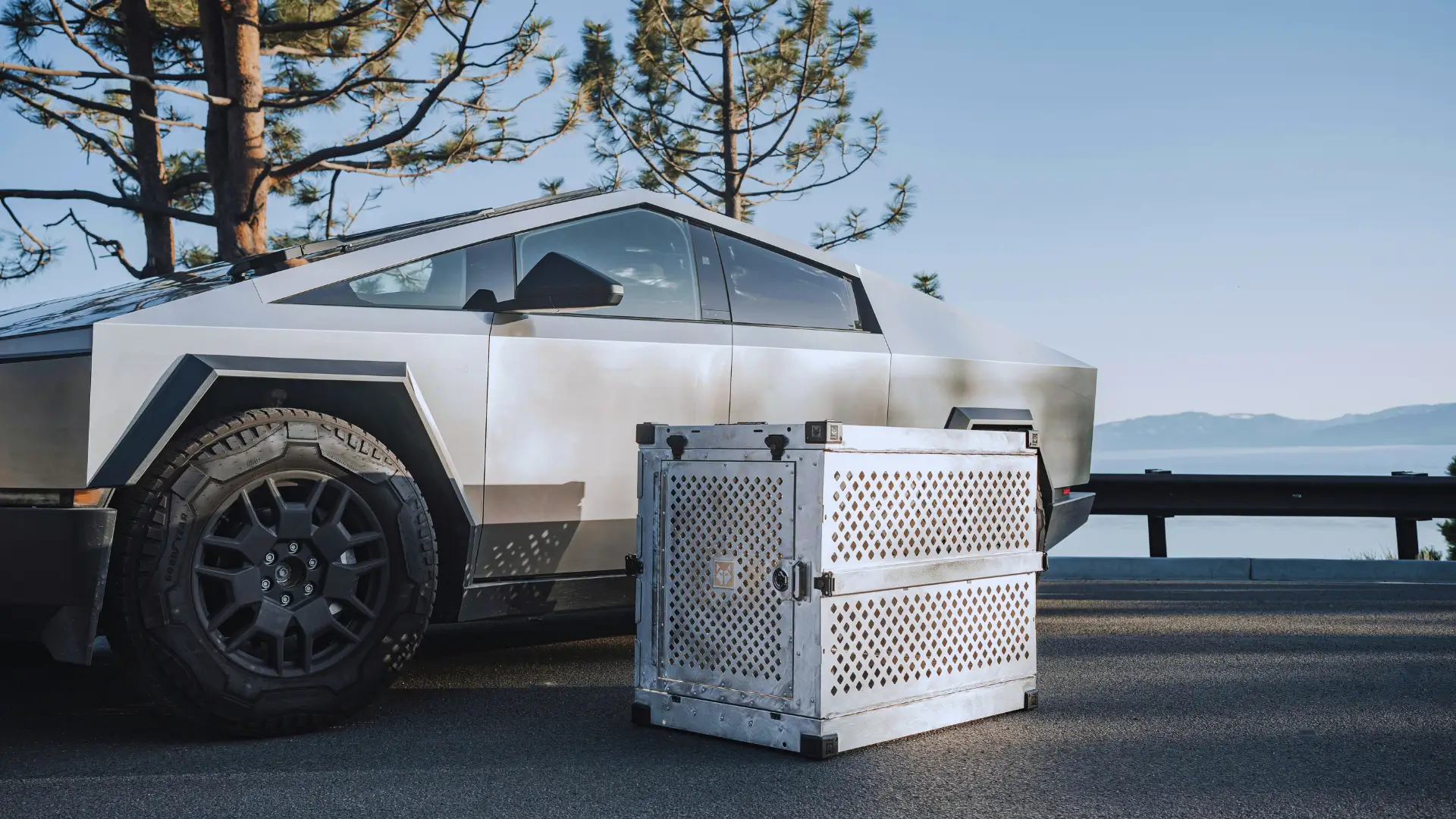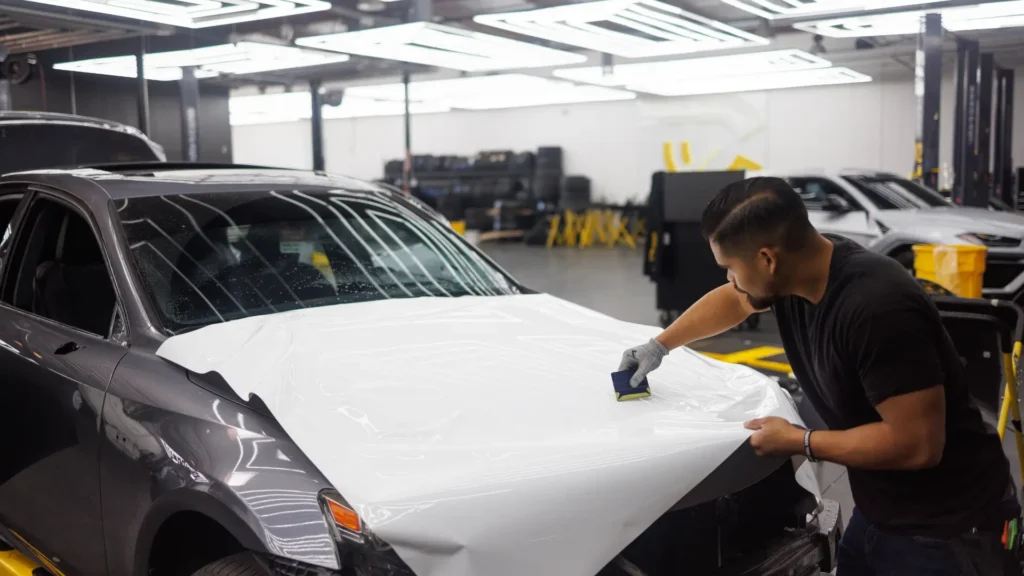Business owners with mobile fleets and car enthusiasts alike often ask us how long do our car wraps really last. Car wraps have surged in popularity as a way to turn work trucks into rolling billboards or give personal cars a fresh new style and layer of protection. For those investing in truck wraps for commercial advertising or custom colour changes on personal vehicles, understanding car wrap durability is crucial.
How Long Does A Car Wrap Last?
Real-World Lifespan for Vinyl Wraps
Generally, a professionally installed vinyl car wrap will last around 5 to 7 years. While a large factor is how you take care of your car wrap, high-quality car wraps from top vinyl brands like 3M or Avery Dennison often come with warranties and can even reach the upper end of that range or beyond under ideal conditions.
Warranty Coverage vs. Actual Durability
While Toronto Car Wrap offers a 3-year warranty on our car wrap services, real-world durability varies widely. Factors like environmental exposure, the quality of materials, and how you care for the wrap play a huge role in whether your wrap starts to fade at year five or still looks sharp at year seven.
What Factors Affect Car Wrap Durability?
Several factors influence how long a car wrap will hold up:
Material Quality – Cast vs Calendared Vinyl
Not all vinyl is created equal. Premium cast vinyl films are engineered to be more durable and resistant to fading or cracking than cheaper calendared vinyl. A high-quality cast wrap can have a much longer lifespan than an economy film. By choosing top-tier materials for your car or truck wraps, you set the foundation for a longer-lasting wrap.
Installation Method & Technician Experience
Proper installation by experienced professionals is critical to durability. A skilled installer will apply the wrap smoothly without bubbles or wrinkles and ensure all edges are sealed. This prevents water, dirt, and wind from getting under the vinyl. A poorly installed wrap, by contrast, might start peeling or bubbling within months. Always trust your car wrap to certified installers so it adheres correctly and stays put.
Environmental Exposure (UV, Climate, Salt)
The environment your vehicle lives in has a big impact on wrap life. Intense UV sunlight will gradually cause any vinyl to fade, crack or peel over time. Road salt and freezing temperatures may lead to cracking around edges if the wrap isn’t protected. Vehicles in mild, temperate climates will generally get closer to the maximum lifespan out of their wraps, whereas a wrap baked under a desert sun or battered by snow and grit might age faster. Wherever possible, park your wrapped vehicle in the shade or indoors to shield it from UV and weather extremes.
Driving Conditions – City vs Highway
How and where you drive also affects durability. A delivery van or semi-truck clocking high mileage on highways will encounter more road debris like stone chips, sand, and gravel that can nick or erode the wrap over time. Stop-and-go city driving might expose the wrap to more pollutants and bird droppings. Truck wraps on big rigs that spend all day outdoors may weather faster than a garage-kept sports car wrap. Knowing your vehicle’s usage, you can take extra precautions, such as paint protection film on high-impact areas if needed.
Care and Maintenance Best Practices
Perhaps the biggest factor is how well you maintain the wrap. A well-cared-for wrap will look better and last longer than one that’s neglected. Regularly washing your wrapped car or truck with gentle methods is key. Dirt, bugs, bird droppings, and road tar can all degrade vinyl if left sitting on the surface. Use a soft cloth or sponge and mild soap to avoid harsh chemicals or abrasive brushes. It’s best to hand wash. Automatic car washes with stiff brushes or high-pressure sprayers can lift the edges of vinyl wraps and cause premature failure. Promptly cleaning off corrosive contaminants like road salt or bird mess prevents stains and etching in the wrap’s finish.
Fleet Wrap Durability – What Business Owners Need To Know
Replaceable Sections & Cost Efficiency
For commercial vehicles like vans, buses, trailers and trucks, durability is especially important. These vehicles are essentially moving advertisements that need to stay vibrant. A high-end vinyl wrap is often more durable than paint when it comes to long-term wear and tear. Many business owners find their wrapped service trucks and delivery vans still look bold and professional after years on the road, as long as they follow the maintenance practices mentioned above.
One advantage of commercial wraps is that if part of the graphics gets damaged, you can replace or re-wrap that section without having to redo the entire vehicle. This patchability means you can keep your fleet looking uniform and fresh without major expense. The wrap itself acts as a protective skin on your company vehicles, preserving the factory paint underneath from UV damage and minor abrasions.
When it comes time to decommission or sell a fleet vehicle, the wrap can be removed to reveal paint that’s often in much better condition than on an unwrapped vehicle of the same age. Investing in durable car wraps and truck wraps for your business fleet not only turns heads on the highway but also helps protect your assets.
Vinyl Wrap vs. PPF Wraps: Which Lasts Longer?
Durability & Use Case Comparison
Vinyl wraps and PPF wraps actually serve different purposes. A vinyl car wrap gives your vehicle a new look and provides a basic barrier against scratches and chips. Paint Protection Film, by contrast, is a crystal-clear urethane film applied primarily to preserve your paint. PPF wraps excel at guarding high-impact areas like bumpers, hoods, and fenders from rock chips and road rash, and they are incredibly durable. Premium PPF products have a slightly longer lifespan, thanks to self-healing properties in the film that make minor scratches disappear with heat. Standard vinyl wraps have been shown to be most effective 5-7 years from installation.
Can You Combine Vinyl Wraps with PPF
The good news is you don’t necessarily have to choose one or the other. In fact, some owners use them in tandem. For example, applying a clear PPF wrap over a vinyl wrap on a truck’s front end to get the benefits of both kinds of protection. If your preference is on protecting your car’s paint, PPF might provide you with more satisfaction. But if you want both protection and a creative visual statement, a combination of a vinyl car wrap plus strategic PPF in high-wear spots can deliver the best of both worlds.
How to Maximize the Lifespan of Your Vehicle Wrap
Storage Tips, Washing Dos & Don’ts
Ultimately, the durability of car wraps comes down to using quality materials and giving them proper care. By investing in a good installation and following some commonsense upkeep, you can ensure your wrap looks great and performs well for years. Remember to wash wrapped vehicles regularly, park in shade or indoors when possible, and avoid anything that could prematurely age the vinyl. When you treat a wrap well, it rewards you with vibrant colour and protection long past the average lifespan.
Final Thoughts – Is a Car Wrap Worth It Long Term?
Whether you’ve wrapped a personal car for style or an entire fleet of vehicles for advertising, you can expect several years of eye-catching service from a proven, durable solution. Car wraps stand up to weather and wear while protecting your paint and showcasing your brand or personality. With options like PPF wraps available for extra defense, you have more tools than ever to keep your vehicle’s finish looking like new.
With the right approach, your wrap will endure the daily grind and continue turning heads, giving you maximum value and visual impact over the long haul. If you’d like to learn more, or have questions, feel free to contact us!

